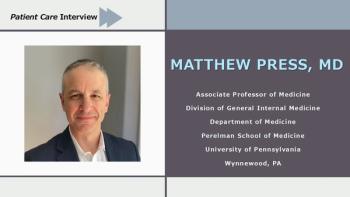
Board Certification Takes Alternative Route
Properly accredited CME replaces computer modules and repeated examinations in this roadmap for continued board certification and optimal lifelong learning.
A new alternative route for continued board certification that replaces computer modules and repeated examinations with properly accredited continuing medical education (CME) to provide an optimal structure for lifelong learning was announced by the National Board of Physicians and Surgeons (NBPAS).
Organizations that provide accredited CME programs are regulated by a rigorous accreditation body, the Accreditation Council for Continuing Medical Education (ACCME), that requires each CME offering to provide an educational gap analysis, “needs assessment,” speaker conflict of interest, course evaluations, and many other performance standards, the NBPAS stated. CME can provide education in both established knowledge and future directions that keep the physician on the “cutting edge.”
CME offerings are highly competitive and provide choice, according to the NBPAS. Numerous organizations offer high-value CME activities. If physicians do not perceive value in a particular CME offering, they may obtain CME elsewhere. In addition, most states require CME activities to maintain licensure. Therefore, using CME to fulfill lifelong learning requirements provides efficiency and minimizes redundant activities.
Following is a complete list of NBPAS requirements for continued certification:
• Candidates must have been previously certified by an American Board of Medical Specialties member board. Initially, NBPAS will certify only physicians in selected specialties. Other specialties and other boards will follow.
• Candidates must have a valid, unrestricted license to practice medicine in at least 1 state.
• Candidates must have completed a minimum of 50 hours of CME within the past 24 months provided by a recognized provider of the ACCME. CME must be related to 1 or more of the specialties in which the candidate is applying. Re-entry for physicians with lapsed certification requires 100 hours of CME within the past 24 months.
• For some specialties (interventional cardiology, electrophysiology, critical care), candidates must have active privileges to practice that specialty in at least 1 US hospital licensed by a nationally recognized credentialing organization with deeming authority from the Centers for Medicare & Medicaid Services (CMS).
• A candidate who has had their medical staff appointment/membership or clinical privileges in the specialty for which they are seeking certification involuntarily revoked and not reinstated must have subsequently maintained medical staff appointment/membership or clinical privileges for at least 24 months in another US hospital licensed by a nationally recognized credentialing organization with deeming authority from the CMS.
Physicians can go to the
Newsletter
Enhance your clinical practice with the Patient Care newsletter, offering the latest evidence-based guidelines, diagnostic insights, and treatment strategies for primary care physicians.
































































































































